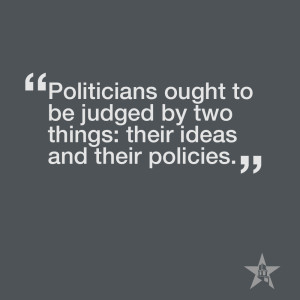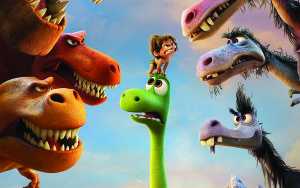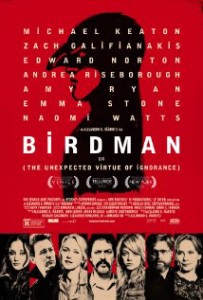We are often reminded that inequality persists in today’s society, yet, it’s humbling to stop for a moment and notice just how far we’ve come. Just look at the bipartisan contenders for the 2016 election. At one point, the candidates included one black man, two women, two men of Latin American descent, a Jew, and, of course, an orange monster masquerading as a billionaire. In a race that is typically composed exclusively of white men, the diversity of this year’s candidates is refreshing and exciting, whether or not you agree with the minutiae of their politics.
 However, the ambition of the various Presidential hopefuls aside, there is an ominous revelation lurking beneath the surface of today’s American politics, a bias that lies not with the candidates, but with the electorate- the voters.
However, the ambition of the various Presidential hopefuls aside, there is an ominous revelation lurking beneath the surface of today’s American politics, a bias that lies not with the candidates, but with the electorate- the voters.
A recent Gallup poll asked a number of Republicans and Democrats how tolerant they would be of a presidential candidate occupying a certain gender, race, sexuality, religion, or ideology. Responses ranged from the relatively unsurprising to the particularly disconcerting.
For candidates who are Catholic, female, black, Hispanic, or Jewish, over 90% of participants said they would not have a problem voting for them. Mormons and homosexual candidates polled lower with 81% and 74% levels of tolerance. Evangelical Christians, perhaps surprisingly, ranked even lower: only 73% favorably with 25% of voters saying they would not elect someone of that background. The candidates with the lowest degree of tolerance among voters were Muslims, atheists, and, unfortunately for Sanders fans, socialists; the latter being favorable to only 47%.
Now a socialist is certainly unique among the other listed characteristics, a lone wolf in the sense that some may have justifiable qualms about the political and economic implications of such a candidate’s beliefs. There’s nothing wrong with disagreement, provided, of course, that one’s opposition to such a candidate depends on the knowledge of what a socialist affiliation actually entails. For instance, nearly every other Western European nation has a pronounced Socialist Party and has for decades. And here, even in anti-Communist America, we currently enjoy the benefit of several programs that are socialist in nature. Social Security and Medicare are two of such services, fueled by the taxes of wage-earners, which in-turn support elderly pensioners. It’s not right or wrong as an ideology. It’s simply less scary in the presence of sufficient context.
Moreover, a disagreement with socialism can be justified on matter of principle but that still leaves the question of why many voters are hesitant to elect Muslims or atheists, or even evangelical Christians and Mormons, for that matter. Thomas Jefferson coined a phrase during the writing of the U.S. Constitution which appeared later in Supreme Court decisions: it said that there should be a “Separation of church and state”, ensuring that Congress would “make no law respecting an establishment of religion, or prohibiting the free exercise thereof,”. The core idea is that because we live in a multicultural nation, it is unjust for a politician of any religious background to impose their values on a national community that does not universally accept or agree with them.
 As a result, Christian politicians should not be able to enact legislation that explicitly favors Christians or forces non-Christians to adhere to their beliefs in the same way that a Muslim politician would be prohibited from doing the same thing. Likewise, an embittered atheist would be unable to enact legislation prohibiting the exercise of religion. No Muslim President would be able to pull a fast one and impose Sharia law, just as no Mormon would be able to legalize polygamy (not that it would be a legitimate concern) as doing so would violate the separation between church and state, not to mention that either law would be shot down by Congress immediately.
As a result, Christian politicians should not be able to enact legislation that explicitly favors Christians or forces non-Christians to adhere to their beliefs in the same way that a Muslim politician would be prohibited from doing the same thing. Likewise, an embittered atheist would be unable to enact legislation prohibiting the exercise of religion. No Muslim President would be able to pull a fast one and impose Sharia law, just as no Mormon would be able to legalize polygamy (not that it would be a legitimate concern) as doing so would violate the separation between church and state, not to mention that either law would be shot down by Congress immediately.
In conclusion, a Presidential candidate’s superficial differences should not be enough to dissuade a voter from supporting them. It shouldn’t matter what a person’s ethnicity, sexual orientation or religious faith is. Politicians ought to be judged by two things: their ideas and their policies- not by where they are on a Sunday morning or by what they have between their legs.




 The newest inductee to the lucrative Best Picture club is Alejandro G. Iñárritu’s Birdman: Or (The Unexpected Virtue of Ignorance). With such a high honor being bestowed on a film there is often ample skepticism as to its actual quality. Is Birdman truly better than American Sniper or Boyhood? The plot summary is this: Riggan Thomson, played by Michael Keaton, is a former blockbuster star, made famous and beloved for his roles as Birdman, a superhero in the 80s and 90s. Having fallen from stardom and faded into relative obscurity in the public eye, Riggan attempts to jumpstart his stagnant career with a self-directed, self-written, and self-acted Broadway production in hopes to once again find relevance in the entertainment industry.
The newest inductee to the lucrative Best Picture club is Alejandro G. Iñárritu’s Birdman: Or (The Unexpected Virtue of Ignorance). With such a high honor being bestowed on a film there is often ample skepticism as to its actual quality. Is Birdman truly better than American Sniper or Boyhood? The plot summary is this: Riggan Thomson, played by Michael Keaton, is a former blockbuster star, made famous and beloved for his roles as Birdman, a superhero in the 80s and 90s. Having fallen from stardom and faded into relative obscurity in the public eye, Riggan attempts to jumpstart his stagnant career with a self-directed, self-written, and self-acted Broadway production in hopes to once again find relevance in the entertainment industry.